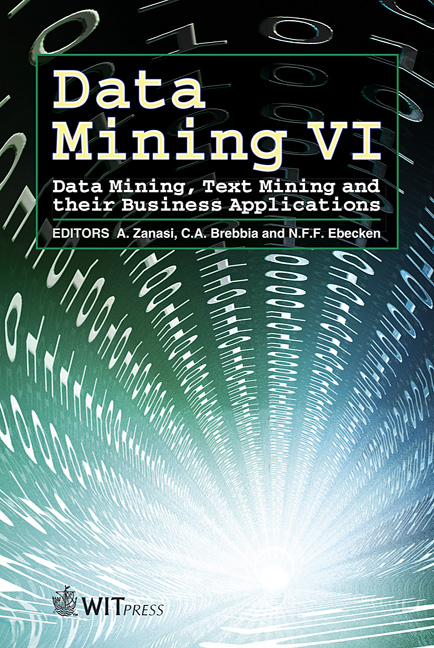Linguistic Summaries On Small Screens
Price
Free (open access)
Volume
35
Pages
10
Published
2005
Size
552 kb
Paper DOI
10.2495/DATA050201
Copyright
WIT Press
Author(s)
E. D’Avanzo & T. Kuflik
Abstract
Nowadays computers are becoming ever smaller and cheaper, and as a result they have become available everywhere. One major drawback of the small computing devices is their small screen (e.g., PDA's and smartphones) that makes it harder to view large amounts of information. The problem is even worse given the flood of information today's users are facing in their daily tasks. This paper presents LAKE, a flexible summarization system consisting of different independent linguistic modules that can easily be configured and parameterized. The system can be used to reduce the amount of information viewed by users of small-screen devices while maintaining its essence. The system works as follows: a set of linguistically motivated candidate phrases is identified. A learning device then chooses the best phrases. Finally, phrases at the top of the ranking are merged to form a summary. LAKE is tested within the framework of eSMEs, a joint Project of Italdata S.p.A. Siemens Business Services Group and Multiplanning s.r.l. companies. Keywords: text mining, machine learning, linguistic knowledge, keyphrase extraction, summarization, small devices. 1 Introduction Nowadays users are facing problems while viewing information displayed on small screen devices (e.g. PDAs and Smartphones). Such devices require presentation of the most essential information only, in order to allow their users to use them effectively. Text summarization is a possible solution to such a problem. Hahn and Mani [1] defined summarization as ‘the art of abstracting key content from one or more information sources’. In fact, the importance of
Keywords
text mining, machine learning, linguistic knowledge, keyphrase extraction, summarization, small devices.





